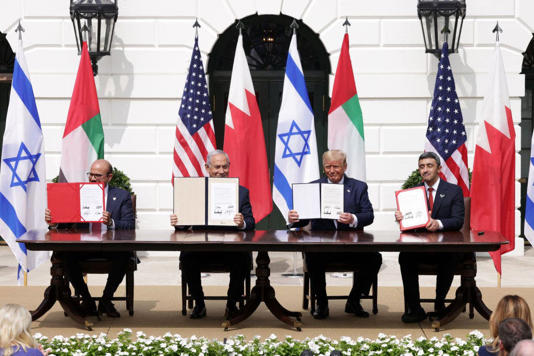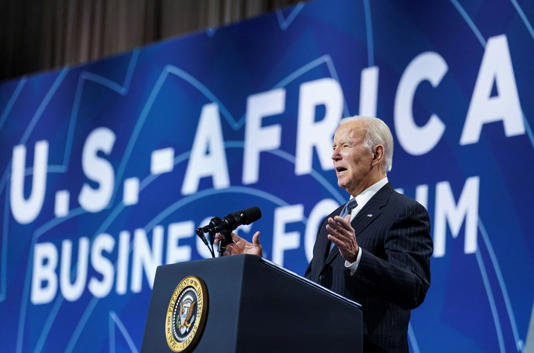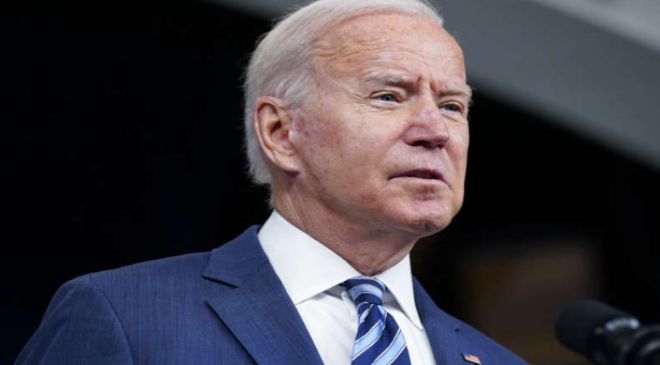JERUSALEM – A group of Republican and Democrat congressional lawmakers have sent a letter to the State Department that requests the Biden administration expand the Abraham Accords in Africa to counter the influence of American adversaries.
Also Read- Suspect detained in shooting near Gorge Amphitheater, sheriff says
Fox News Digital obtained the bipartisan congressional letter, which states, “We believe it is in our national security interest, as well as in the interests of sustainability, for the Biden Administration to continue strengthening and expanding the Accords and to further promote normalization with Israel on the African continent.”
The Trump administration negotiated the groundbreaking Abraham Accords, first signed in 2020, that secured diplomatic relations between four Muslim-majority countries with Israel. Those countries include the United Arab Emirates, Bahrain, Morocco and Sudan.
“We believe this broader framework of engagement can be vital to American efforts to combat endeavors by China and Russia to undermine sovereignty and stability within the African continent,” the lawmakers wrote.
Also Read– Why Blinken’s Big Trip to China Could Already Be Doomed

The signatories to the letter wrote, “We would request a written response outlining the department’s current and future efforts to [implement] a strategy that advances Israeli normalization into Africa and grows the work of the Accords there.”
With respect to the Abraham Accords, Rep. Cory Mills, R-Fla., a signatory to the letter, told Fox News Digital, “I have not seen that the Biden administration has made any attempts to go out and expand the recognition, from a diplomatic as well as from a trade perspective, with what I would consider to be one of our greatest allies, which is Israel.”
Also Read– China fails to release cremation data from late 2022 when its Covid-19 outbreak raged

Mills, a decorated Army combat veteran who speaks Arabic, warned during his video interview with Fox News Digital about the influence of U.S. adversaries – Iran, Russia, North Korea and China – on the African country.
“Whenever we have been able to help support are allies in varying countries that it certainly brings about a stabilization element to this … and it builds less reliance on adversarial relations, whether that be Russia, China, Iran, North Korea, etc.” Mills continued.
“We do know that Africa plays a key element when it comes to China’s Belt and Road Initiative,” he said.
Also Read– 6 Great Pieces Of Advice For Starting An Online Business

“It is great to open up these continual alliances that would also help to strengthen Israel’s position within the Middle East,” Mills continued.
Some of the countries to which Mills believes the U.S. should be reach out to jumpstart diplomatic relations with Israel are Algeria, Libya, Mali, Niger, Tunisia, Somalia and others.
“We understand some of the nations will very much repel against the ideas. But we want to ensure that we [at] least open diplomatic channels and explaining why this would be a good from a trade perspective … but also just trying to ensure that we are putting out there an advocacy on expansion of behalf of the Abraham Accords.”
Read More:-Invest in Your Future: 7 In-Demand Careers to Watch Out For
Mills and his congressional colleagues wrote in the letter, “We would request a written response outlining the department’s current and future efforts to implementing a strategy that advances Israeli normalization into Africa and grows the work of the Accords there.”
The State Department has not responded to the letter, said Mills.

Alberto Fernandez, who served as U.S. charge d’affaires in Sudan (2007-2009), told Fox News Digital the bipartisan letter is a “very important push” to change the dynamics in Africa because “There is a kind of anti-normalization coalition within the African Union. There are countries that do not want to see better relations with Israel.”
However, “the door is ajar” for expanding diplomatic relations between Israel and African countries, said Fernandez, who is the vice president of the Middle East Media Research Institute (MEMRI).
Read More:-U.S. stocks rally as inflation data cements bets on rate hike pause

Fernandez, who also served as the State Department’s coordinator for strategic counterterrorism communications, said the Biden administration needs “to strengthen the relations of the countries that are along the line of the Abraham Accords spectrum.” He noted the “United Arab Emirates is farther along the spectrum,” but he also noted that Sudan isn’t as far along.
Fernandez said that among the northern African countries that don’t have diplomatic relations with Israel, “Tunisia is pro-Palestinian” and “Algeria is pro-Iran.” He noted that within the Islamic heartland “Iraq is still under the thumb of Iranian militias.”
Egypt was the first Arab country to reach bilateral diplomatic relations with Israel in 1979. Jordan followed in 1994 with diplomatic relations with the Jewish state.
Read More:-Overheated Market? Fidelity’s Jurrien Timmer Believes It’s ‘Almost’ In A New Bull Run

Fernandez said the current efforts by the Biden administration to seal a new nuclear deal is a “slap in the face of the Abraham Accords,” adding that the White House wants to deal “with the biggest opponent of the Abraham Accords.”









































